Documentary filmmaker Oyetayo Raymond Ojoade: Abused men in Trinidad and Tobago need help
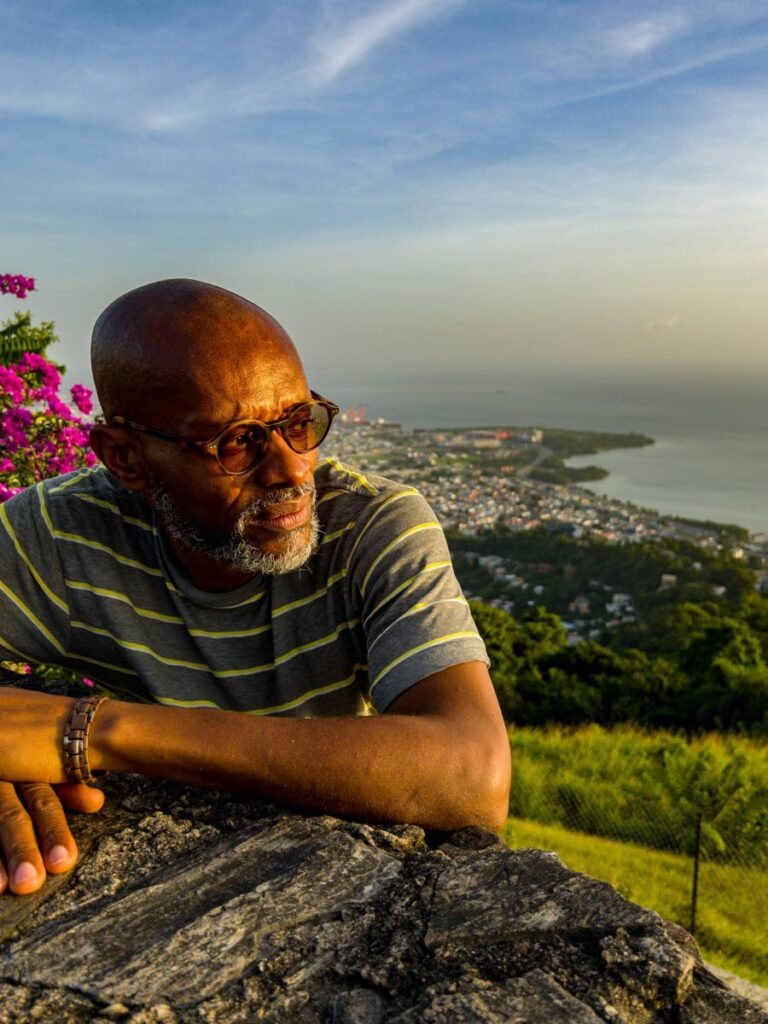
DOCUMENTARY filmmaker Oyetayo Raymond Ojoade has expressed hope that his award-winning film on domestic violence against men in Trinidad and Tobago will help victims receive the support they need.
He spoke about the inspiration for his 2022 film, The Hidden Crime: Violence Against Men, in an interview with Newsday.
"All these years it is all about women, women, women," he felt. "Nothing about men. Men are victims as well."
He said some men did not realise initially they were being abused.
"Some took it for a joke. They grew up seeing their parents in the same situation. It was a part of life until friends told them they were being abused, to leave and go."
He discovered some of his male colleagues were also victims, but would only speak about their experiences behind closed doors.
"You never hear about men (being victims). People laugh at men. They think, 'How can a woman beat you up?'"
He said there were cases where women bruised themselves and told the police they had been assaulted. Ojoade also said when some men report they are victims to the police they are turned away.
"Police tell them, 'Go back home and be a man.'"
He lamented that if a man cries he is dismissed as "female" or "weak."
"Men can take it when a woman shouts at them. They keep quiet. But men should be able to talk about issues."
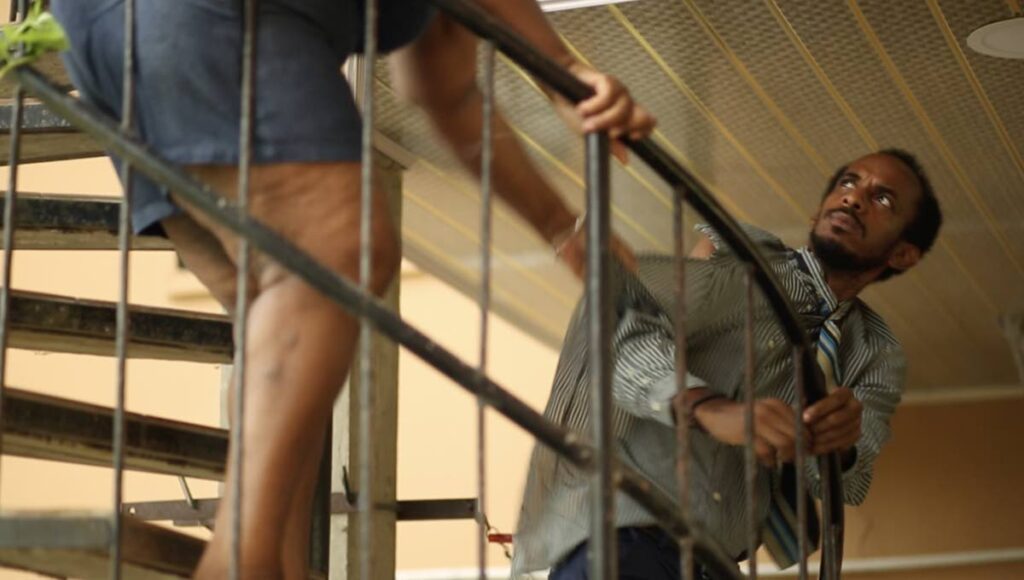
He speculated that men's not being able to speak about their abuse is leading to premature death.
"Men are falling sick and dying before women. They keep their problems to themselves."
He said the only place men can talk freely is in a bar, and even then they cannot tell their colleagues all that has happened to them.
"It is very sad what is happening to men."
Ojoade said statistics show more female victims than men, but speculated there was severe underreporting of male victims.
"We do not know for sure."
He said men seek counsellors, but only in private.
"We need to come out and talk about this thing and let there be significant change for the men."
Ojoade reported filming on The Hidden Crime was done between 2020 and 2022 and during the covid19 pandemic. He recalled getting content for the film was very difficult, as the victims were reluctant about going on camera.
"I had to reassure them that their voices would be changed and their faces blocked. Some victims were okay with showing their faces. The majority showed their feet and hands. They are afraid the woman (who abused them) would find out and come and 'deal' with them."
One victim whose identity is hidden in the film said that men are "under attack."
"And the reason why they cannot defend themselves is because the system is saying women are always right."
Ojoade said the victims in the film experienced different types of abuse: physical, emotional, sexual and financial.
"Some men go as far as putting money on a woman's land to build a house. Then the woman turned around and chased them away. They end up leaving there bitter, with nothing. It brings tears to my eyes."
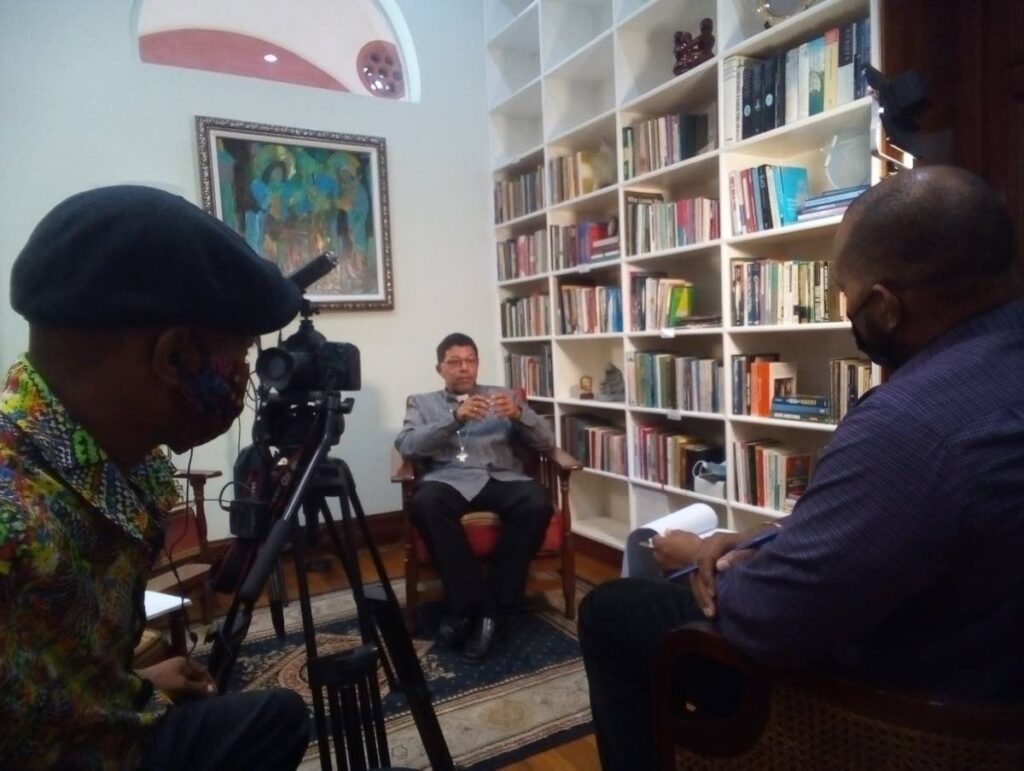
The documentary also includes interviews with religious leaders, including RC Archbishop Charles Jason Gordon.
"Domestic violence in TT and in the Caribbean has a very long history, and one could see that it kind of goes way back to origins, to slavery, to what happened on the plantation system, and what happened between the master and the slave," the archbishop said in a clip.
Ojoade said initially he intended only to include the archbishop, but was advised to include other religious leaders, namely Islamic and Hindu. He added that domestic violence against men was happening across religions.
"It is the same problem everywhere. Nobody wants to admit there is a problem or begin to even solve it."
Ojoade said he received no financial assistance to make the film and funded it out of pocket.
"I wanted to help the men."
The film also includes an interview with UWI senior lecturer, founder of International Men's Day and Newsday columnist Dr Jerome Teelucksingh. His feedback included having more constructive dialogue where both male and female would sit down with a mediator and decide what solutions to move forward; more ads on TV and radio to enlighten the public about domestic violence; and more men’s groups need to be funded and stay focused on helping younger men.
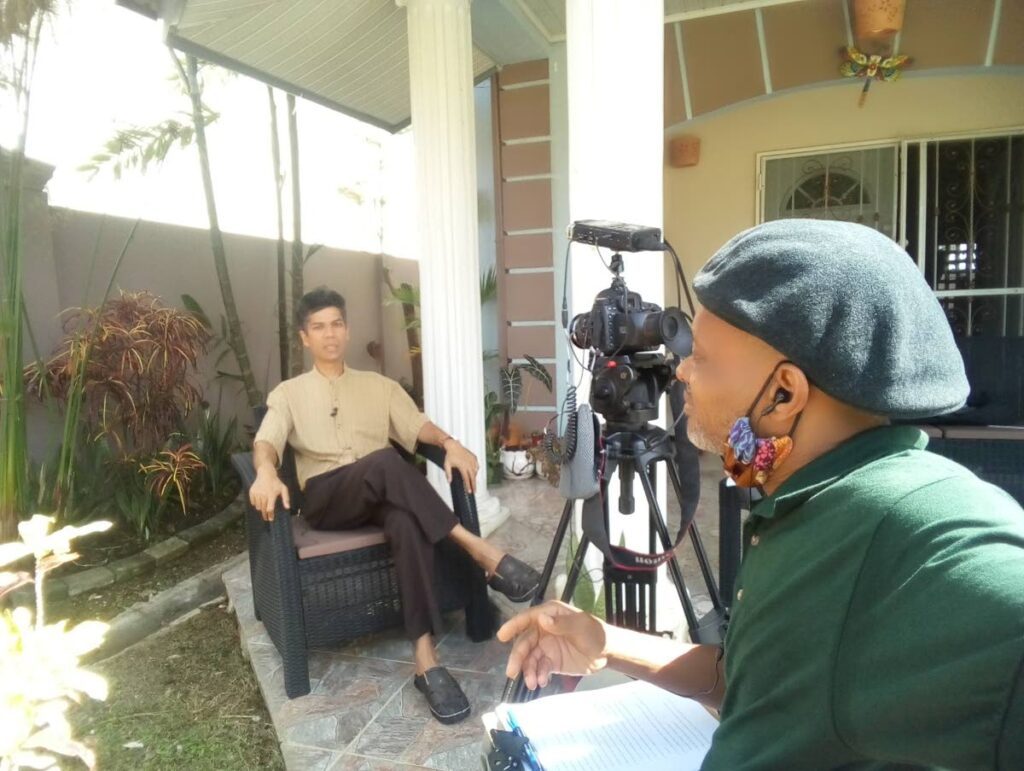
Ojoade said he is working with Teelucksingh to create a curriculum to sell to UWI for lecturers to use as a tool in gender studies.
The film was premiered to a selected audience via Zoom and Ojoade hoped for it to be shown to a wider audience locally. He said, unfortunately, the film was not selected for the 2022 TT Film Festival and attempts to have it shown on local television and approaches to government ministries have been unsuccessful.
"I am still out here and I am still pushing for the documentary to be screened and for something to happen."
He recalled that he was advised if he wanted to screen the film locally there were some things he should remove, but could not do that, as he wanted the film to be authentic.
"The men want you to hear their stories the way they told me on camera. Why cut some things out?"
But the film has been screened at international festivals in Los Angeles and in Africa. Ojoade, who is half-Nigerian, recalled he was in Nigeria in September last year for the Kaduna International Film Festival and was interviewed on radio about the film.
"Most men (there) are willing to talk and happy someone like me would open it up and talk about the problem. In Africa, they are willing to talk. In the Caribbean, the men are not. They are shy and afraid."
He said he planned to return to Nigeria to make a sequel.
At Kaduna, The Hidden Crime received an award for Feature Documentary and the film would receive the same award at the Coal City Film Festival, Enugu State, Nigeria. Ojoade said he was notified about an award in Ghana as well, but did not have all the information yet.
"I am wondering why they are not accepting (the film) here, in its home country. It received three awards outside. Strange."
The Hidden Crime was originally intended to be part of a trilogy on domestic violence. A second part based on women victims called My Skin, My Tears was completed, but Ojoade reported a planned third film on the LGBTQ community was halted, as he was unable to get victims to participate.
He reported he will be breaking The Hidden Crime up into a series and releasing it on his YouTube channel weekly to help promote discussion of the issues that men are going through.
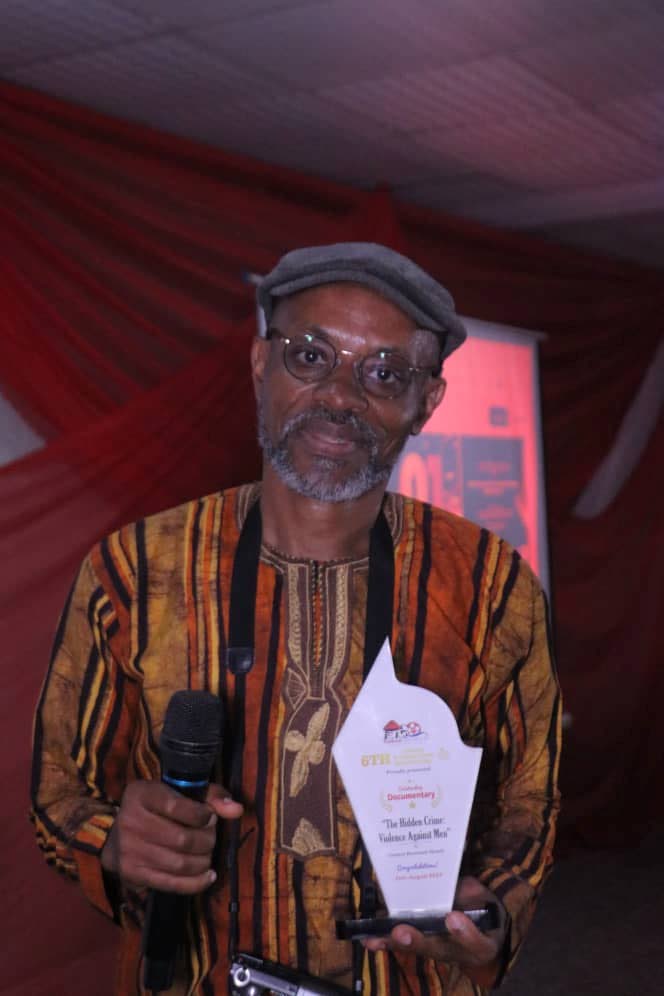
About Oyetayo Raymond Ojoade
Oyetayo Raymond Ojoade, born from the cross-cultural union between a Trinidadian mother and Nigerian father, began his technical career in computer graphics in Lagos, Nigeria. His interest in still art and photography was stimulated by a technology degree in industrial design (graphics) from the Abubakar Tafawa Balewa University of Technology Bauchi, Nigeria (1997-2001), which further developed a curiosity about "moving pictures" – thus his interest in film.
He did a degree degree in film at UWI, St Augustine, where he excelled in courses such as editing, photography, cinematography and documentary making.
He previously worked as a network support technician in the film programme at the UWI, St Augustine campus, and taught video production at COSTAATT until August last year when he resigned as a senior lecturer.
He has directed and produced five short films and four feature films: documentaries called My Skin, My Tears (2022), The Hidden Crime: Violence Against Men (2022), The Pursuit of Truth @ 125 (2018), Bottom in De Road (2015); The Madonna Murti (2013), a feature documentary; an investigative documentary, Who Let the Dogs Out (2008); an animated narrative film, Suck Meh Soucouyant, Suck Meh (2009); Shouters; and the Control Freak Empire (2010), a documentary that was screened at the Columbia Gorge International Film Festival, Vancouver, Washington in August 2011.


Comments
"Documentary filmmaker Oyetayo Raymond Ojoade: Abused men in Trinidad and Tobago need help"